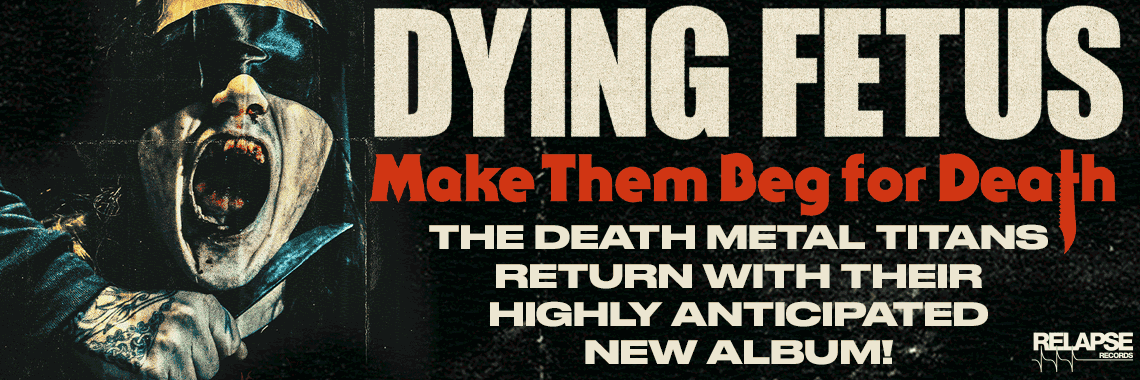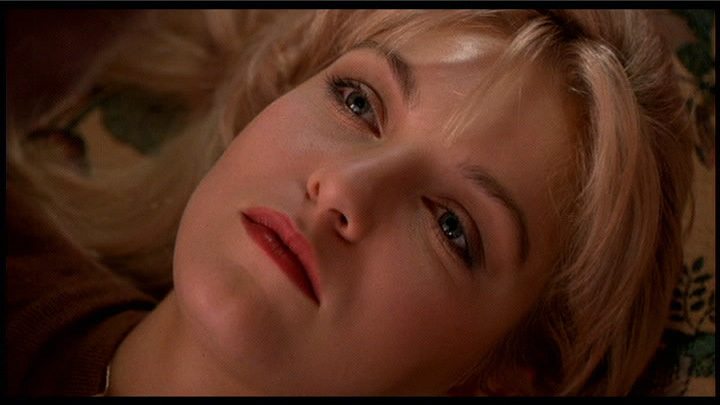If you’ve been with us for a while, you surely remember our January 2008 issue, in which we not only bestowed Album of the Year honors on Pig Destroyer’s Phantom Limb, but talked to vocalist J.R. Hayes at length about major influence David Lynch. “With [Lynch], it’s like you’re watching paintings that move,” Hayes said at the time. “He could do a five-hour movie with no narrative and I’d be into it.” So, what better man to talk to for the Twin Peaks Project currently spreading across the internet. This article is part of a series of investigations, reflections and reminiscences by writers, artists and musicians who were influenced by David Lynch’s seminal television show Twin Peaks. To read more or to learn how you can participate, visit www.twinpeaksproject.com.
I’m almost hesitant to write about Twin Peaks. I mean, I love it, it’s the shit and all that; it’s just that I know people whose TP knowledge blows mine out of the water. These people eat, breathe and shit Twin Peaks. They’ve shaken hands with Kyle Fucking MacLachlan. They’ve touched the Loglady’s actual log. They own not one, but two of the ultra-rare Leo Johnson commemorative ponytails. I don’t think those actually exist, but they should. My point is, only something truly unique and profound can inspire that kind of cultish passion and creepy devotion. Twin Peaks is less like a television show and more like a lucid dream or a voodoo spell.
Part 1 “It’s All Like Some Crazy Dream”
Most shows are in a hurry to shove you through the plot to the conclusion, but not this show. Twin Peaks would rather hypnotize you with long, suggestive shots of beautiful waterfalls and ghostly fir trees. It would rather pour you a nice hot cup of black coffee than tell you what the fuck is going on. Who killed Laura Palmer? Don’t worry about it, have another jelly donut. Twin Peaks is never in a hurry to do anything, except fuck your mind.
Most shows are too hung up on being realistic and believable, which usually translates to boring and predictable. David Lynch and Mark Frost sidestep this by boldly embracing absurdity and surrealism, putting the viewer on notice that anything could happen at anytime. Big Ed could turn into a 50 ft. praying mantis and eat the Double R Diner and you’re just going to have to roll with it.
There was an interesting piece in The Guardian a few years back, where Lara Flynn Boyle (Donna Hayward) talks about filming a scene in the pilot. She says that David Lynch told her to “Think of how gently a deer has to move in the snow.” Later, in the same article, Kimmy Robertson (Lucy Moran) says that Lynch “[would] get us into a circle and ask questions — it was like he was hypnotizing us.” At times, it seems like everyone on the show is overacting, but they are all overacting so well together that it moves beyond melodrama into something else entirely. Superdrama, maybe? I don’t know what it is, but it’s magnificent.
Part 2 “Mozart Is a Punk Bitch”
Anyone familiar with Lynch’s films knows that Angelo Badalamenti is his secret weapon, and his soundtrack for Twin Peaks may be his finest hour. It’s impossibly lush and warm and jazzy. It’s eerie and utterly horrifying. It’s so good, in fact, that it threatens to upstage the rest of the production.
This amazing composer deserves WAY more attention. In addition to his other work with Lynch, I highly recommend his soundtracks for Secretary and Arlington Road.
When that opening theme comes in, it’s like you’re falling into a giant fluffy bed full of NyQuil and Percocets. Relax, you are now under the Twin Peaks spell. Here, have a coffee and a slice of pie. And some incest.
Part 3 “The Haunting of Laura Palmer”
Usually, a victim in a murder mystery is more of a plot device than a character. Postmortem, they are quickly enshrined as an innocent, then promptly used as a vehicle for Matthew McConaughey to give a fiery closing argument or as a justification for Chuck Norris to sidekick 200 people in the head. There’s a shot in the pilot episode after the principal announces that Laura is dead, where they show the trophy case in the school lobby, and Laura’s picture is there in the center. Most of the time, that would be the last you’d see of poor Laura Palmer, but not on Twin Peaks, oh no.
Suddenly, the question isn’t just “who killed Laura Palmer?”; it’s also “who was Laura Palmer?” There’s a diary, and then a video, and then a tape, and then a fucking secret diary. Eventually, she’s brought back as Maddy the dopey lookalike cousin. Laura Palmer haunts the entire show like a poltergeist. Is she a homecoming queen? A devoted volunteer? A cokehead? A masochistic nymphomaniac? She’s all of those things and more; she’s the intersection of sex and violence, half kindness and half cruelty. She’s one of the most fascinating characters of the ’90s. Not to mention that Sheryl Lee is a fucking awesome actress, which brings me to…
Part 4 “Twin Peaks: Fire Walk With Me Is Some Dark, Dark Shit”
A lot of people hate this movie, including many hardcore devotees of the show, and to be fair, there is plenty of room for criticism (the mildly irritating presence of Chris Isaak; the unforgivable absence of Audrey Horne, for example), but Sheryl Lee’s performance here is one of those risky, daring, all-in, once-in-a-lifetime kind of performances, and she is just electric in every scene she’s in. When she screams, it cuts all the way down to your bones. Then Badalamenti decides to get dark as fuck and make you pee your pants. There’s no humor to be found in Twin Peaks this time around, only terror and insanity.
Part 5 “The Cliffhanger From Hell”
The infamous, hellish final episode. Crazy-ass David Lynch, absent for most of the second season directing Wild at Heart, parachutes in at the last minute to give you both barrels of his looney-gun in this deranged nightmare masquerading as network television. I mean, seriously, WTF David Lynch?
By all rights, Twin Peaks should never have happened. It’s a small miracle that it was even made, much less aired. The fact that it became part of mainstream American culture kind of makes my head hurt. National networks don’t usually hire real artists and then give them the freedom to indulge themselves like this. Maybe they should. Makes me wonder what Dallas would have been like with Jodorowsky at the helm, or if Cronenberg had been tapped to direct Airwolf. Ah, what could have been…







